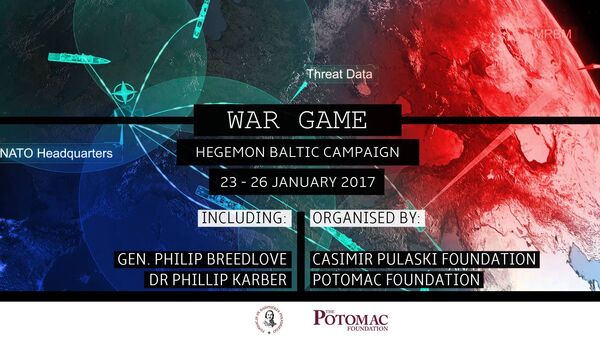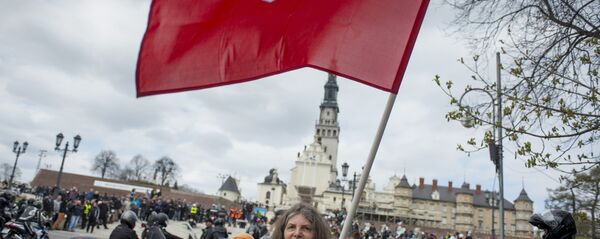The war games, dubbed 'War Game: Hegemon Baltic Campaign', took place between Monday and Thursday at the Warsaw National Stadium – which hosted the NATO summit last July. Sponsored by US, Swedish and Polish defense companies, and using the Hegemon computer-based simulation platform, the mental exercise was organized by the Washington-based Potomac Foundation and Poland's Casimir Pulaski Foundation.
Speaking to Sputnik Poland about the war games, Adam Wielomski, political science professor and deputy editor in chief of the Konservwatyzm.pl political portal, explained that for Poland, the greatest danger of staging such games is that they may become a self-fulfilling prophecy.
"Sometimes in politics it happens that there is no real issue behind a conflict or dispute," Wielomski noted. "Nevertheless, both sides feel threatened, and thus become keen to put forward mutual recriminations against one another, to improve security and their [military] strength against the other side. This, in turn, results in a reaction from the other side, and this is the essence of the self-perpetuating conflict."
"Four days of simulation, projection and strategy in real time. The #WarGameFKP has begun!"
The political scientist suggested that he finds himself "under the impression that this kind of self-perpetuating conflict is what we are dealing with in the relationship between the West and Russia. And the worst prospect for me, as a Pole, is the idea that, God forbid, these recriminations and attempts by both sides to ensure their own security result in an armed conflict, because it, unfortunately, would take place on Polish territory."
Accordingly, Wielomski stressed that "Poland must do everything in its power to avoid the escalation of the tensions from both sides."
Unfortunately, the professor recalled, the policy of the current government in Warsaw considers that security can be assured by focusing almost exclusively on the 'Russian threat'. This, he said, leads the country's leaders to try to emphasize NATO's interest in Poland's defense, hence the exercises of the kind held in Warsaw this week.
#Suwalki gap, #Smolensk gate- discussing key areas in confrontation with #Russia. @BartosiakJacek #WarGameFKP pic.twitter.com/56kcdnxQsx
— Maciej Kowalski (@maciejkowalski) 23 января 2017 г.
Asked what he thought of the ambassador's remarks, and their contrast to the narrative of the war games, Wielomski explained that "what we are now dealing with is two equally-matched currents. The 'plot', figuratively speaking, that was played out at the war games, was a plot from the Obama era. Most likely, the simulation took place according to a scenario created by the previous administration, which believed that Russia poses a serious threat to the US and NATO, and therefore must be prepared for a possible attack or to repel a pre-emptive strike."
"The statement by the ambassador, on the other hand, seems to reflect more the new position of US diplomacy, which arrived together with Trump, and which seems much more interested in finding equilibrium and creating a balance of power in the world." Diplomats, Wielomski noted, "are the quickest to read the signals coming out of the White House. In fact they probably get these signals direct from Washington, whereas the military receives them much later."
Instead, he said, "I would imagine that the two presidents will agree on the need to meet in person on some neutral territory, in order to discuss the international situation, the need to change the 'Cold War lite' policy that the two countries are now engaged in, and to discuss the prospects and opportunities for cooperation."
Ultimately, "if the result of the talks is an agreement on a summit meeting of the two presidents, this is something I would like to see happen," Wielomski concluded.





